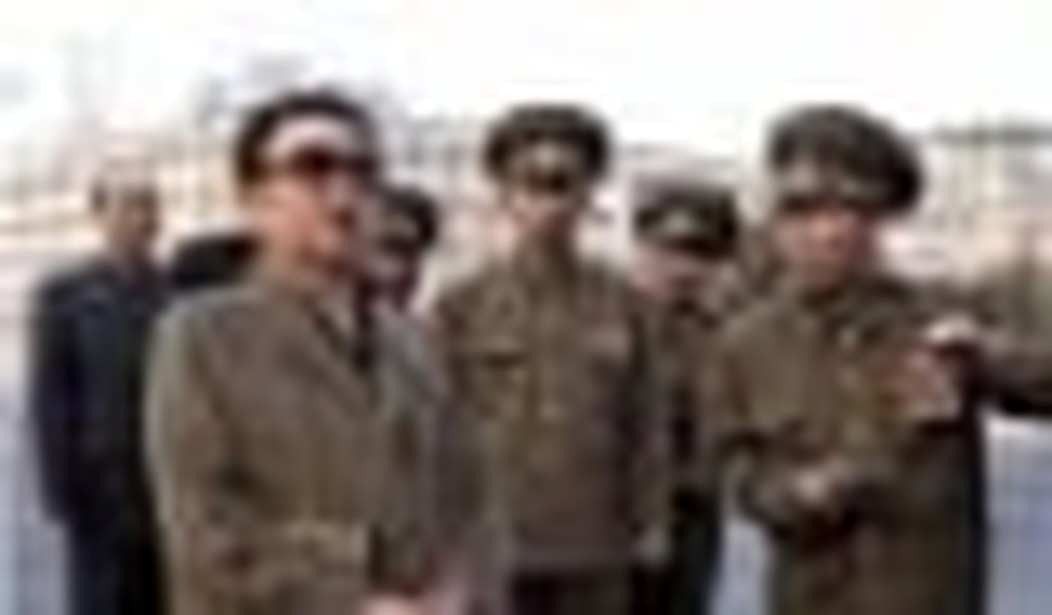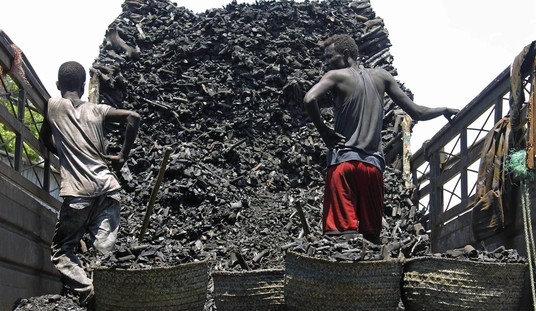On Wednesday, the Democratic People’s Republic of Korea (DPRK) declared itself party no longer to the 1953 armistice that halted the Korean War and established the Southeast Asian peninsula’s current uneasy peace.
The announcement comes on the heels of a long-range missile test, a nuclear detonation, and multiple short-range missile launches by the rogue state, none of which represented physical attacks on neighboring nations, but all of which were intended to be seen as threats by those who would dare pressure Pyongyang to walk back its aggressive policies and live within the bounds of international agreements.
North Korea’s latest ratcheting up of belligerent rhetoric and military posturing comes as a direct result of its southern neighbor, the Republic of Korea, announcing its decision to become a member of the Proliferation Security Initiative (PSI), a Bush-era program established for the purpose of coordinating a worldwide effort to prevent the proliferation of weapons of mass destruction. The 90-nation organization is the brainchild of John R. Bolton, the former U.S. undersecretary of state for arms control and international security.
The highest-profile tool used by PSI-supporting nations to prevent proliferation is shipment interdiction, often conducted by boarding ships suspected of carrying WMD materials or forcing them into friendly port for inspection — a tactic that has been used against North Korean ships in the past and which in 2003 directly led to the unraveling of the largest nuclear black market ever discovered: that of Pakistani scientist A.Q. Khan.
Pyongyang has long warned South Korea that a decision by the latter to join the PSI would be tantamount to an act of war. Not coincidentally, the DPRK responded to Seoul’s announcement by firing short-range rockets — one surface-to-ship, one surface-to-air — into the Sea of Japan (or the “Eastern Sea,” as the Koreans refer to it), a wordless warning that its past threats should not be forgotten. That action has, of course, been accompanied by heightened rhetoric aimed at reminding Seoul of the danger that exists mere miles to its north and of convincing leaders of the free Korea to walk back their steps to put pressure on the rogue regime.
An increase in counter-proliferation activities in its immediate region is a very real cause of concern for Pyongyang, given its reliance on black market weapons and technology sales for income and its recent history of exporting nuclear technology (as recently seen in the nuclear reactor complex in Syria, which was built with North Korean assistance and destroyed by Israeli aircraft in 2007).
Further action to prevent North Korea from aiding other states and non-state actors in their pursuit of nuclear weapons is necessary to maintain some semblance of international stability and domestic security. However, as (or if) steps are taken to that effect, Pyongyang will continue to ratchet up its threatening rhetoric and activities — something that will make U.S. President Barack Obama’s position incredibly uncomfortable.
Unfortunately, if Obama’s response to Pyongyang’s recent missile and nuclear tests are any indication, the administration’s answer to such aggression will be to dial back the pressure on the North Korean regime, not keep the heat on the rogue state to comply with international will.
Thirty-thousand U.S. soldiers and airmen are currently stationed in South Korea as a guarantor of American military intervention should Pyongyang decide to withdraw from the 1953 armistice and resume open war with the South. If the Democratic People’s Republic of Korea continues ratcheting up its level of belligerence — especially if that includes taking up arms in an effort to take back what it views as the other half of its personal territory — the foreign policy neophyte currently serving as commander in chief of the U.S. military will have some very difficult decisions to make.
Based on his actions to date, Obama appears to have little idea how to deal with such a difficult situation beyond making speeches and appealing to the United Nations, which is incapable of taking any action other than issuing sternly-worded statements in response to flagrant violations of international law and sovereignty. North Korea’s persistence in openly flaunting its defiance of Obama’s reasonable words and the UN’s toothless resolutions has stumped the American executive, whose entire worldview is based in a belief that kind words, conciliatory outreach, and appeals to Turtle Bay are the only tools necessary for dealing with international crises.
As President Obama is hopefully beginning to learn, stern words, helpless pleas, and concessions aren’t particularly effective problem-solving tactics in the real world. Whether this dovish, rigidly-ideological president will absorb (and act on) that lesson in time to make a difference is an open question, and one on which a significant portion of Obama’s legacy will depend. Far more than that, though, whether or not such a lesson is learned in time may be the question on which the safety of civilians around the world, both on the Korean peninsula and elsewhere — including within the U.S. homeland — comes to depend.









Join the conversation as a VIP Member